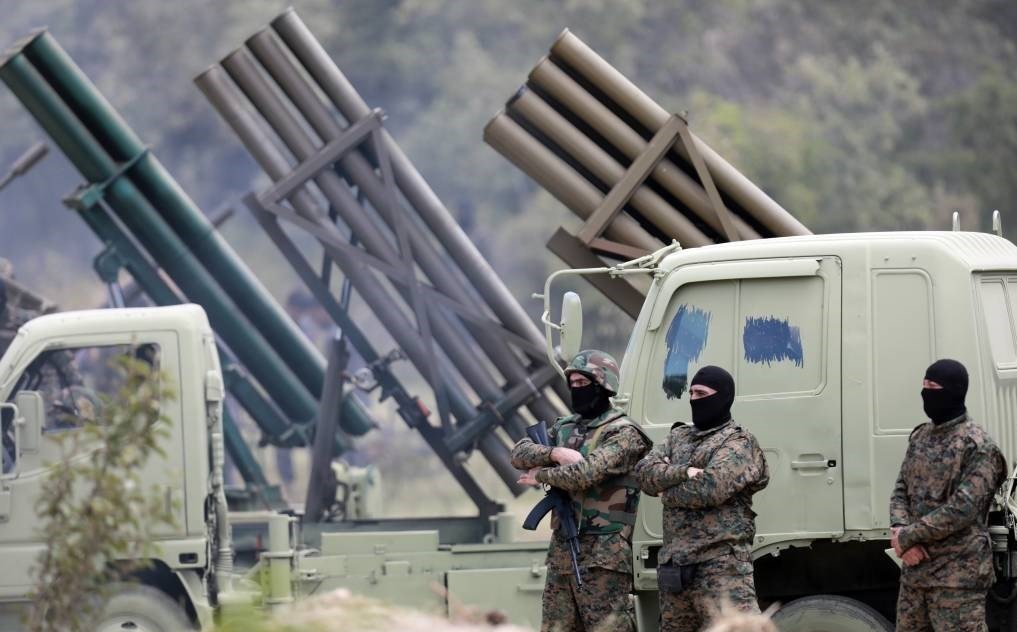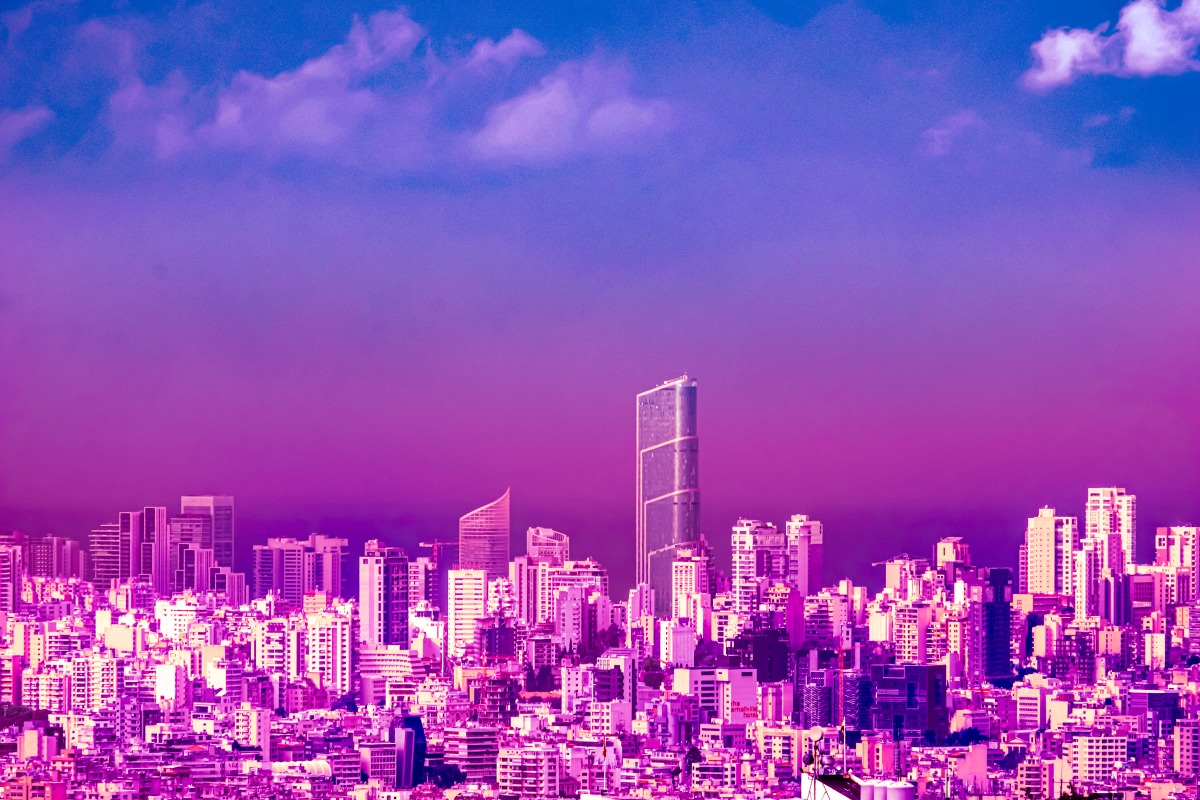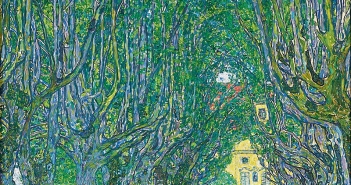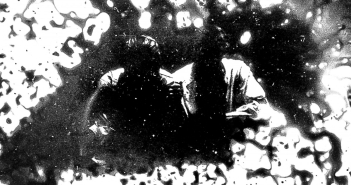Media coverage of the war currently unfolding in Lebanon describe Hezbollah as an “Iranian-backed” group, and frame the conflict as one between them and Israel. In this reading, little attention is given to Lebanon beyond Hezbollah, nor that Hezbollah, for all its links to Iran, is first and foremost a Lebanese group embedded in Lebanon’s sociopolitical fabric. While Hezbollah’s military superiority enables it to act unilaterally, and undermine the Lebanese state at any given moment, the armed group must still weigh into consideration its relations with other domestic actors, both allies and adversaries, in order to secure its longer-term presence in Lebanon.
War with Israel will strain these relations. Israel’s brutal response has already killed over 2,000 people, displaced over a million, and destroyed homes across Lebanon. Israeli atrocities will likely breath fresh life into the Lebanese resistance, birth a new generation of Hezbollah fighters, and contribute to an even greater level of anti-Israel sentiment across Lebanon. But simultaneously, the damage inflicted on Lebanon will make many call into question Hezbollah’s unilateral course of action in launching rockets into Israel since October 7th last year.
So far, the only material result of these attacks has been to bring harm to Lebanon, with no obvious benefit to the Palestinian cause beyond the symbolic show of solidarity with Hamas. And Lebanon has enough problems as it is. The country continues to suffer in the wake of a gargantuan economic collapse that has hollowed out state institutions, and sent poverty rates spiralling over the past five years.
Criticism of Hezbollah is valid, but should not be allowed to reinforce Netanyahu’s narrative that Lebanon has been “kidnapped” by Hezbollah, or that if Hezbollah were out of the picture, a process of normalisation could begin between the two countries. While it is true there are some political actors in Lebanon who secretly harbour a desire for normalisation, most notably the Christian far right, it is equally true that Palestinian solidarity, and an appetite for anticolonial resistance against Israel, extends beyond Hezbollah to wider Lebanon.
The opening years of Lebanon’s Civil War in the mid-1970s showed this. A pro-Palestinian coalition of Lebanese groups led by Druze leader Kamal Jumblatt formed an alliance to challenge the Christian far right who were trying to expel the Palestinians from Lebanon. It is also worth noting how today, US-led funding for the Lebanese army is deliberately limited, with no supply of the sort of weaponry that could render them a match for Israel. It may be argued that the non-state position of resistance to Israel is inevitable, given the West’s unconditional support for Israel would never allow the Lebanese army to assume such a position, even if it enjoyed a democratic mandate to do so.
Domestic criticism of Hezbollah and opposition to Israel are not mutually exclusive. Over the past decade, Hezbollah’s revered status as the resistance to Zionist aggression has depreciated. The group’s stances towards various events in Lebanon and Syria have exposed them as being part of a corrupt political establishment that it so often claimed to stand apart from. Hezbollah’s decision to enter the Syrian Civil War in support of the Assad regime was hugely controversial and pitted it against Sunni Islamist opinion both in Lebanon and regionally. Indeed, news of Hassan Nasrallah’s death prompted scenes of jubilation in Idlib, the last holdout against the Assad regime in post-war Syria.

Mass Protest Movement
More recently, in 2019, when a hugely optimistic mass protest movement erupted in Lebanon demanding an end to the country’s corrupt sectarian system, Hezbollah intervened decisively against the protestors, denouncing the movement as a plot by foreign embassies trying to destabilise Lebanon. In late 2019 and into 2020, Hezbollah-affiliated gangs were commonly seen confronting street protestors in Beirut, thuggishly trying to intimidate them off the streets.
Hezbollah’s thuggery was made visible once more in 2021, when a prominent Hezbollah critic and civil society activist Lokman Slim was found murdered in his car in South Lebanon. The judicial case into the killing failed to make any progress, reflecting a culture of impunity that Hezbollah enjoys in Lebanon.
Hezbollah impunity was the focus of heated criticism in the aftermath of the massive explosion at the Beirut port in 2020, which came about when thousands of tons of fertiliser exploded in a warehouse, killing over 200 people and causing heavy damage to much of the capital. Many believed that the suspicious presence of such a fertiliser which can been used to make improvised explosives, was somehow linked to Hezbollah operations. The unexplained failure of repeated bureaucratic efforts to remove the dangerous material from the port, hinted at opaque Hezbollah interference, possibly linked to Syria. The group was the first to publicly reject calls for an international investigation into the port explosion, further placing them under suspicion and above the law.
Because of the port’s location in the city, the explosion did most damage to Christian neighbourhoods in East Beirut. This circumstance helped stir up anti-Hezbollah sentiment among Lebanese Christians. This is significant because one of Hezbollah’s major domestic allies since the mid-2000s, has been a Christian party, the Free Patriotic Movement (FPM). The alliance with the FPM was informally articulated through the Mar Mikhael Agreement, that effectively gave Hezbollah political cover and greater legitimacy for their armed presence in Lebanon.
The FPM’s longtime leader Michel Aoun became president of Lebanon in 2016, further securing Hezbollah’s position. But his presidential term ended in 2022, and he is yet to be replaced as political power brokers, including Hezbollah, fail to agree on a successor. Lebanon’s current presidential vacuum is casting uncertainty toward Hezbollah’s place within domestic politics.
Meanwhile the FPM have been heavily criticised by other Christian parties including the Lebanese Forces, for aligning themselves with Hezbollah and failing to protect Christian interests, as the devastation from the Beirut explosion served so well to demonstrate. With parliamentary elections scheduled for 2022, the Lebanese Forces sought to capitalize on anti-Hezbollah sentiment and courted Christian voters frustrated with the FPM’s passive collaboration with Hezbollah. This meant adapting a bullish attitude towards Hezbollah, particularly in relation to the Beirut explosion.
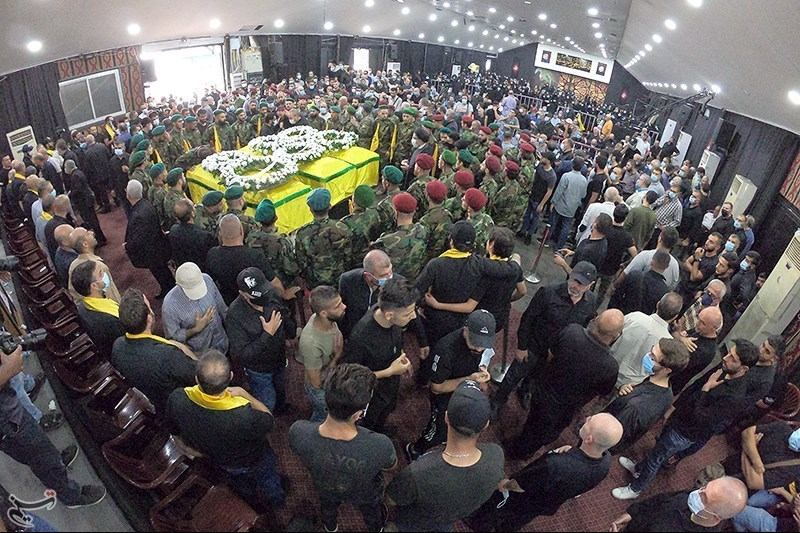
Funeral of the Hezbollah members killed in the clashes.
The Tayouneh Incident
Tensions came to a head in October 2021 with the Tayouneh Incident. Hezbollah and its allies organised a protest to the Ministry of Justice in Beirut against the Beirut Port investigation. The protesters consisted of Hezbollah and its allies’ Shia’ supporters from South Beirut, many of whom were armed. When the crowd reached a major junction called Tayouneh, demarcating where Christian East Beirut begins, a segment of the protesters entered adjacent neighbourhoods and were fired on by Christian gunmen positioned in surrounding high rises, most likely affiliated with the Lebanese Forces.
Street fighting ensued all afternoon, with six Hezbollah-affiliated gunmen killed. The incident put Beirut on a knife edge with many fearing the outbreak of a new civil war. The location of Tayouneh was ominously symbolic. It was here that a Christian militia attack on a busload of Palestinians in 1975 set in motion Lebanon’s fifteen year long civil war.
The parliamentary elections went ahead in 2022. The FPM lost seats, and the anti-Hezbollah Lebanese Forces made substantial gains, becoming the country’s largest Christian party. This, combined with the presidential vacuum, means the political cover that Hezbollah enjoyed under the Mar Mikhael agreement is no longer in place.
Fast forward to current events and none of these political considerations seem immediately relevant. Israel has now brought the war to Lebanon and the country for the foreseeable future is locked into Hezbollah’s war of resistance. But Hezbollah has been hit hard. Its’ military strength, carefully accrued over decades, has been severely depleted.
Some estimate that about half of the Lebanese group’s arsenal of rockets and missiles have been destroyed by Israeli airstrikes, though it is hard to be sure. Since early summer, a string of senior Hezbollah commanders have been killed by Israel, including the party’s longtime leader Hassan Nasrallah on 27 September. To kill Nasrallah, Israel dropped 80 American-made ‘bunker busting’ bombs, weighing 2,000 pounds each, on Hezbollah’s underground command centre in the heart of South Beirut.
The attack shook the whole capital, levelling six residential buildings and leaving a massive crater of rubble, with Nasrallah and others dead and buried underneath. This devastation came just as Hezbollah was reeling from Israel’s attack on their communication systems, as hundreds of pagers and walkie talkies used by Hezbollah operatives, simultaneously exploded killing approximately 32 people, including children.
Infiltration
Within the space of a few weeks, Israel has shown how devastatingly extensive their infiltration of Hezbollah has been over the past few years. Until now, analysts tended to emphasise how Hezbollah’s involvement in the Syrian Civil War enabled the group to expand and increase its strength. Now commentators are pointing out how the group may be over-extended.
The need for more recruits, collaboration with corrupt Syrian officers, and Russian intelligence likely provided Israel with opportunities to better infiltrate the group. There are also rumours of an Israeli-planted Iranian spy who has gained close access to Hezbollah in recent years and potentially played a role in the killing of Nasrallah. The Israeli attack was based off real-time information regarding the former leader’s whereabouts. The use of AI in satellite and drone footage to detect Hezbollah locations, and of sophisticated surveillance systems like Pegasus have also likely played a part in giving Israel the clear upper hand over their rival.
While Hezbollah may be weakened, they likely retain significant strength. An Israeli ground invasion will meet dogged guerilla resistance from thousands of determined and well-trained Hezbollah fighters with substantial, albeit depleted, firepower. Hezbollah are well dug in. Bogging down IDF soldiers in endless guerilla warfare will help them change the narrative that so far has gone against them.
This narrative may play a part in shaping the Hezbollah that emerges out of this conflict. A major question will be Iran’s ability to support Hezbollah’s military recovery. Hezbollah relies on its military superiority within Lebanon to coerce other Lebanese actors into forming political arrangements that favour Hezbollah.
Events in recent years have, however, destabilized these arrangements and brought Hezbollah and Lebanon to an uncertain political juncture. Now, the war with Israel threatens Hezbollah’s military superiority. Together these developments raise uncertainty as to how Hezbollah will emerge from this conflict and whether they will be able to retain their dominant political position in Lebanon once the dust settles. Such domestic considerations may ultimately prove more decisive to Hezbollah decision-makers than the current confrontation with Israel.
Feature Image: Hezbollah fighters in southern Lebanon, May 2023

